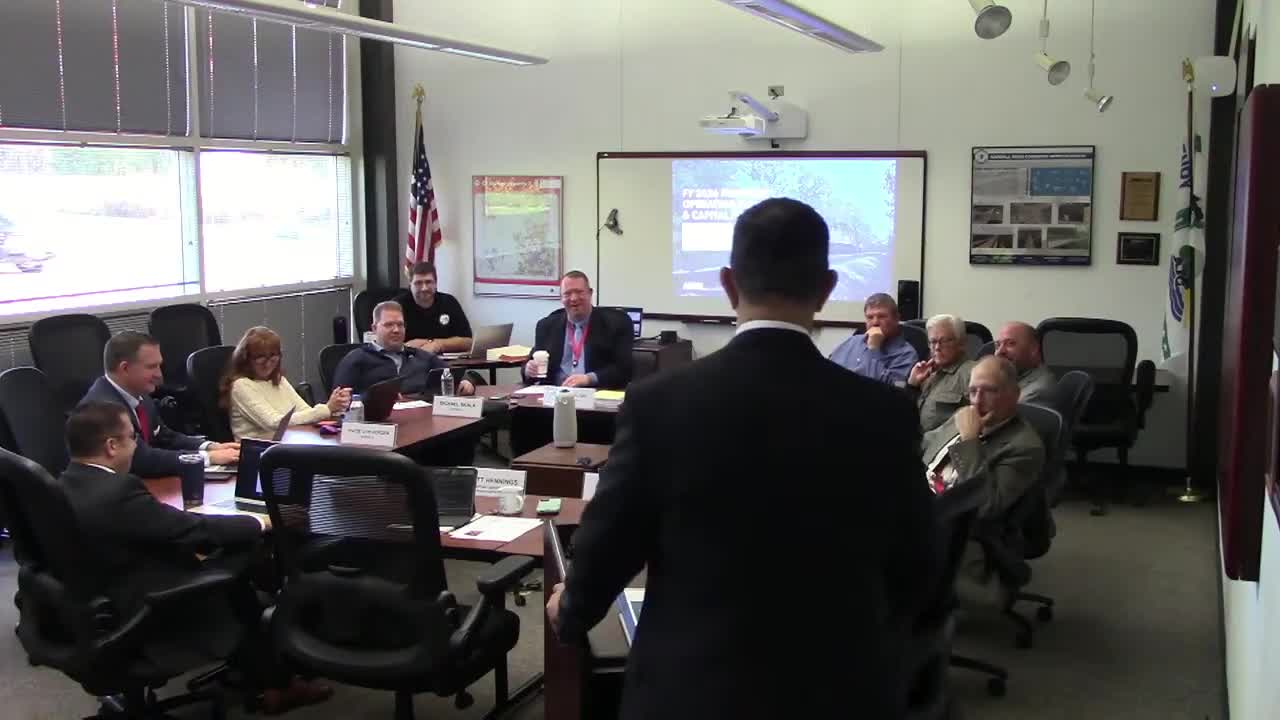Metro outlines $1.05B operating budget proposal, plans 13% fare increase and major capital program
Get AI-powered insights, summaries, and transcripts
Subscribe
Summary
Metro presented a draft fiscal-2026 operating budget that uses a 13% fare increase and COVID-reserve funds to avoid service cuts in 2026, while warning of a larger structural budget gap when one-time reserves are exhausted.
Metro officials presented a draft operating budget and five-year capital plan to the McHenry County transportation committee and answered local questions about the Woodstock rail yard and bridge-replacement program.
John Morris, Metros head financial officer, said the agency is releasing a draft operating budget for public comment that totals roughly $1.107 billion across all pass-through work, with approximately $1.052 billion in direct Metro operating lines. The proposal relies on a system-generated revenue forecast of about $325 million (including an assumed 13% fare increase that raises single-ride fares to roughly $7.75 and monthly passes from $135 to $155) and continued use of COVID-reserve funds to smooth 2026 operations. Morris said the agency expects to largely exhaust COVID reserve funds by the end of 2026 and warned of a substantially larger structural deficit in 2027–28 if no new recurring funding is secured.
On capital, Morris described a 2026 capital program of about $573 million focused on rolling stock, track/bridge work, signal and communications upgrades, station and parking improvements, and other facilities and equipment. Rolling stock replacement and rehabilitation are the single largest capital lines (roughly $268 million in 2026) as Metro continues to modernize and replace older railcars. Morris said Metro is planning a five-year capital program totalling about $2.3 billion, with priorities that include new railcars, station modernization and ADA improvements, low- or zero-emission equipment, and bridge and track rehabilitation.
During Q&A McHenry County members pressed Metro staff about the Woodstock rail yard project; Metro staff said the project is roughly 30% designed and that NEPA completion is targeted for mid-2026, after which Metro will pursue grant funding for construction. Committee members also asked about cash acceptance on trains; Metro staff said cash remains accepted today (constituting under 10% of transactions) but the agency is studying alternatives that balance revenue collection with accessibility and Title 6 obligations.
Metro staff emphasized the role of regional sales-tax revenue and the RTAs distribution decisions in the agencys revenue profile; Morris said a fully funded scenario would require state action to deliver additional support (the presentation included a hypothetical $68 million state contribution used to support capital). Morris told the committee the agency is trying to prioritize measures that avoid service cuts in 2026 and that fare increases are one element of that strategy.
Ending: Metro will release the draft budget for public comment and return with a final proposal for adoption following public input and any changes in RTA/legislative support.
